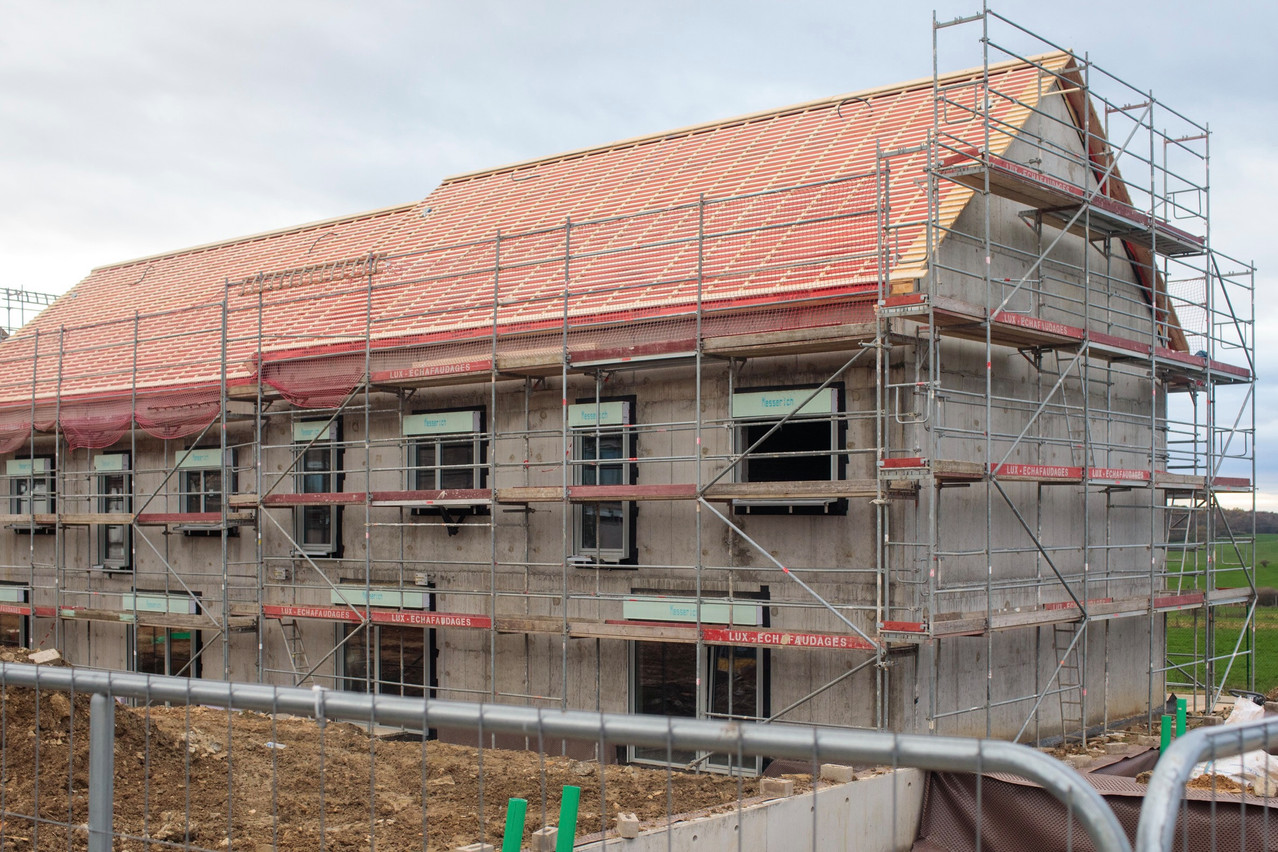Luxembourg’s residential real estate market is currently undergoing a tremendous change, primarily a price correction, following a decade-long period of exceptional growth fuelled by cheap loans and high net disposable income. While disposable income still remains high, loans are now much , and lending standards are getting . It took less than 14 months for the European Central Bank to raise the deposit facility from 0.0% to 4.0%, an increase of 400 basis points, between July 2022 and September 2023. This is an unprecedented rate change, which consequently pushed housing loan and mortgage rates in Luxembourg from an average 1.34% to 4.71% in the same period for new housing loans with an initial fixation of one year, according to data from the Luxembourg Central Bank (BCL).
Buyer’s agony
Let’s try a back-of-the-napkin calculation. The average selling price of an apartment in 2022 was €695,000, according to the national statistics bureau, Statec. Let’s say a household in 2022 only took €600,000 in mortgage for a 30-year period. At a 1.34% rate, this would translate to a monthly payment of €2,025, rounded to the nearest euro. But if the same household took the same mortgage in September 2023, at 4.71%, their monthly payment would jump to €3,115. That is assuming that house prices have not increased, but still, the payments increase by €1,090 per month, or over 50% more.
Many households would be put off by this increase in payments and decide to hold out for the rates to moderate, even if they do not expect the house prices to go down substantially. The rates have since gone further up and were at 4.93% as of February 2024. In effect, there would be much fewer potential first-time buyers in the market.
Renter’s anguish
One potential side effect would be that now there are more potential renters in the market, which in turn would likely push the rents further up. Indeed, the trend in the advertised asking price per square meter continued to increase, data from Immotop, a property listing site, . Moreover, landlords could justify higher rents by citing the increased cost of financing and maintaining rental properties amidst rising interest rates.
Seller’s anxiety
Fewer interested buyers meant that sellers, especially for existing homes and apartments, had to decrease prices to make the offer competitive to other offers. Data from the Housing Observatory, a unit of the Ministry of Housing and Spatial Planning, supports this theory. While the prices per square meter for existing apartments dropped from €8,734 in 2022 to €8,091 in 2023, a decrease of about 7.4%, the number of sales dropped by 34%.
In contrast, for apartments which are to be built in the future, the prices remained resilient and even increased by 8.3%, as property developers are probably reluctant to reduce prices and can stretch out the construction period. However, that led to a drop in sales by 75%. Overall, loan volumes 44% in 2023.
It might also be interesting to note that many homeowners, who might have sold their dwellings for a better or bigger unit, would also now hesitate to exit since they are now faced with selling their own units at lower prices than a year ago while taking on a new loan at much higher rates for the new dwelling. This would mean that many potential owners who would otherwise have upgraded would continue living in the same home, and there will be fewer houses and apartments for sale.
Bank’s affliction
Higher rates would also mean that banks are more in checking potential homebuyers to minimise any mortgage defaults. That would mean , and thus many potential buyers would be priced out of the market or find it more difficult to qualify for loans. This would mean even fewer buyers and less demand, causing prices to decline further.
In summary, the current housing market in Luxembourg is for sellers who are homeowners of existing housing units who desperately want to exit the market for personal reasons or who are unable to service their loans, and potential buyers, who are bargain hunters with higher savings and deposits, and desperate to buy, even at high mortgage rates. Given that first rate cuts are in June, and in 25 bps piecemeals, to only up to 75 bps by December 2024, the Luxembourg housing market is shaping up for buyers and sellers, both of who are in desperate need to take the plunge anyway.
